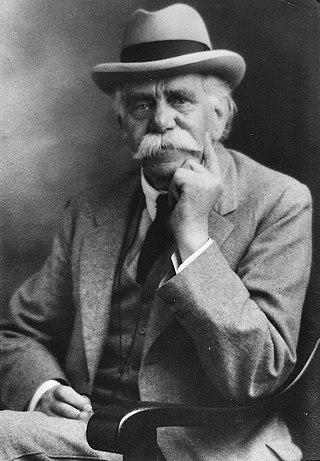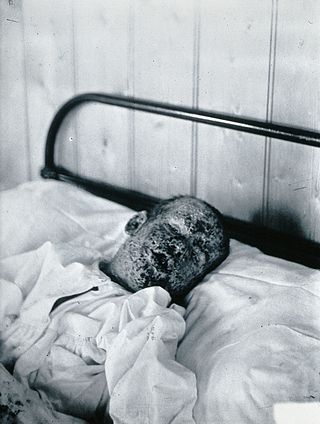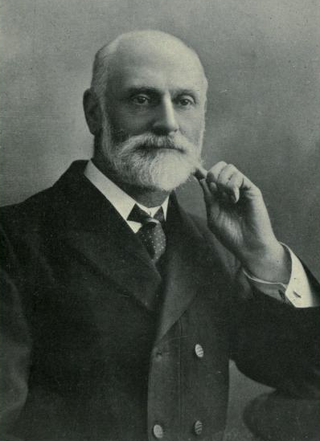Related Research Articles
The anti-cult movement consists of various governmental and non-governmental organizations and individuals that seek to raise awareness of cults, uncover coercive practices used to attract and retain members, and help those who have become involved with harmful cult practices.
Jennifer Hornsby, FBA is a British philosopher with interests in the philosophies of mind, action, language, as well as feminist philosophy. She is currently a professor at the School of Philosophy, Birkbeck, University of London. She is well known for her opposition to orthodoxy in current analytic philosophy of mind, and for her use of J. L. Austin's Speech Act Theory to look at the effects of pornography.

The National Anti-Vaccination League (NAVL) was a British anti-vaccination organization that was formed in 1896 from earlier smaller organizations. Historically, the League had opposed compulsory vaccination, particularly against smallpox. It was part of a wider anti-vaccinationist movement, arguing that vaccination did more harm than good.

Walter Robert Hadwen was an English general practitioner, pharmaceutical chemist and writer. He was president of the British Union for the Abolition of Vivisection (BUAV) and an anti-vaccination campaigner, known for his denial of the germ theory of disease.

William Tebb was a British businessman and wide-ranging social reformer. He was an anti-vaccinationist and author of anti-vaccination books. He was concerned about premature burial.
The UK Vaccination Acts of 1840, 1853, 1867 and 1898 were a series of legislative Acts passed by the Parliament of the United Kingdom regarding the vaccination policy of the country.
Vaccination and religion have interrelations of varying kinds. No major religion prohibits vaccinations, and some consider it an obligation because of the potential to save lives. However, some people cite religious adherence as a basis for opting to forego vaccinating themselves or their children. Many such objections are pretextual: in Australia, anti-vaccinationists founded the Church of Conscious Living, a "fake church", leading to religious exemptions being removed in that country, and one US pastor was reported to offer vaccine exemptions in exchange for online membership of his church.
Saba Mahmood (1961–2018) was professor of anthropology at the University of California, Berkeley. At Berkeley, she was also affiliated with the Center for Middle Eastern Studies, Institute for South Asia Studies, and the Program in Critical Theory. Her scholarly work straddled debates in anthropology and political theory, with a focus on Muslim majority societies of the Middle East and South Asia. Mahmood made major theoretical contributions to rethinking the relationship between ethics and politics, religion and secularism, freedom and submission, and reason and embodiment. Influenced by the work of Talal Asad, she wrote on issues of gender, religious politics, secularism, and Muslim and non-Muslim relations in the Middle East.

Joseph Hiam Levy was an English author and economist. He was educated at the City of London School and joined the Civil Service. He later became a lecturer in economics at Birkbeck College and an important figure in the Personal Rights Association.
William Anthony Gamson was a professor of Sociology at Boston College, where he was also the co-director of the Media Research and Action Project (MRAP). He is the author of numerous books and articles on political discourse, the mass-media and social movements from as early as the 1960s. His influential works include Power and Discontent (1968), The Strategy of Social Protest (1975), Encounters with Unjust Authority (1982) and Talking Politics (2002), as well as numerous editions of SIMSOC.

Elizabeth Nichol was a 19th-century British abolitionist, anti-segregationist, woman suffragist, chartist and anti-vivisectionist. She was active in the Peace Society, the Temperance movement and founded the Darlington Ladies Anti-Slavery Society. In 1853 she married Dr. John Pringle Nichol (1804–1859), Regius Professor of Astronomy at the University of Glasgow. She was one of about six women who were in the painting of the World Anti-Slavery Convention of 1840.
Ann Taves is Distinguished Professor of Religious Studies at the University of California, Santa Barbara. She is a former president of the American Academy of Religion (2010). From July 2005–December 2017, she held the Cordana Chair in Catholic Studies at UC Santa Barbara. Taves is especially known for her work Religious Experience Reconsidered (2009), stressing the importance of the findings and theoretical foundations of cognitive science for modern religionists.

David "Avocado" Wolfe is an American author and conspiracy theorist. He promotes a variety of pseudoscientific ideas such as raw foodism, alternative medicine, and anti-vaccine sentiment. He has been described as "[o]ne of Facebook's most ubiquitous public figures" as well as an "internationally renowned conspiracy theorist" and a "huckster".
Jessie Hannah Craigen, was a working-class suffrage speaker in a movement which was predominantly made up of middle and upper-class activists. She was also a freelance speaker in the campaigns for Irish Home Rule and the cooperative movement and against vivisection, compulsory vaccination, and the Contagious Diseases Acts.

Keeanga-Yamahtta Taylor is an American academic, writer, and activist. She is a professor of African American Studies at Northwestern University. She is the author of From #BlackLivesMatter to Black Liberation (2016). For this book, Taylor received the 2016 Cultural Freedom Award for an Especially Notable Book from the Lannan Foundation.

The 1896 Gloucester smallpox epidemic affected more than 2,000 people in Gloucester between 5 January and 27 July 1896. A large number of the town's population were not vaccinated.
Mary Hume Rothery or Mary Catherine Hume-Rothery was a British writer and campaigner for medical reform. She campaigned against the Contagious Diseases Act and founded the National Anti Compulsory Vaccination League.

Lieutenant-General Arthur Phelps was a British civil engineer, homeopath and anti-vaccinationist.

John Thomas Biggs (1847–1929), best known as J. T. Biggs was a British sanitary engineer and anti-vaccinationist.
References
- ↑ ""Announcing our new JBS editors"". North American Conference on British Studies. Retrieved 16 January 2023.
- ↑ Ro, Christine (October 31, 2021). ""Why mandatory vaccination is nothing new"". BBC. Retrieved 16 January 2023.
- ↑ North, Anna. ""The long, strange history of anti-vaccination movements"". Vox. Retrieved 16 January 2023.
- ↑ Zinoman, Jason (October 30, 2021). ""Why the Vampire Myth Won't Die"". New York Times. Retrieved 16 January 2023.
- ↑ Yale, Elizabeth. ""Why anti-vaccination movements can never be tamed"". Religion and Politics. Retrieved 16 January 2023.
- ↑ "Nadja Durbach Wins John Simon Guggenheim Fellowship for 2016". University of Utah.
- ↑ Earl, Elizabeth (July 15, 2015). ""The Victorian Anti-Vaccination Movement"". The Atlantic. Retrieved 16 January 2023.